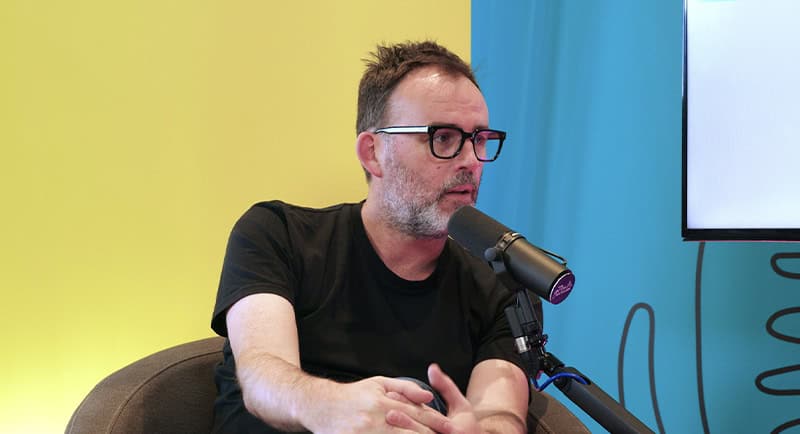According to Telstra CMO Brent Smart, “Nothing has ever been invented that’s as good at killing ideas as a corporation – they’re built to kill ideas.”
Referencing the idea that “culture eats strategy for breakfast” Smart said: “If you can create a creative culture inside a corporation, it’s an incredibly powerful thing.”
Reflecting on his career, Smart said he “loved” his 20 years in agencies, but it got to a point where “the driving motivation” to leave agencies and become a marketer “was frustration with clients.”
“I was just frustrated because I felt like we were putting the right ideas on the table, but they weren’t getting through to the corporations that we were working with for a multitude of reasons. I thought, what if I could be on the other side of the table? What if I could be able to say yes to ideas, and create the conditions for ideas to not die, but thrive?”
It was this thought that brought Smart client side, he said. “You can have more impact being in charge of a brand as opposed to trying to influence people who are in charge of a brand.”
Smart was talking to Dan Krigstein on The Growth Distillery’s Reset for Growth vodcast, run by News Corp Australia.
Smart pointed to originality, and doing things that are distinctive in the market, as being the fuel for creativity.
“We’ve all been so busy trying to make experiences frictionless and spending a lot of time thinking about how we digitise these different experiences, that in many ways we’ve taken the personality and creativity out of them.
“The world’s only getting noisier and noisier. There’s never been more content there, so you’ve got to do something interesting and creative to stand out and cut through. Sometimes a bit of friction is a really good thing.”
Smart pointed to a fixation on short-term performance as something the industry is too focused on at the expense of good growth.
“Every market is under pressure. We’ve never had better tools to deliver short-term growth – we’ve got better data, we can target better, we can optimise in real-time. It’s all fantastic, but I think that short-term focus leaves a lot of growth on the table,” he said.
“When you build brands over the long term, you build future demand for your brand, which you might not see this quarter. In fact, you might not see it next quarter, next year, or the year after. Taking that long-term view and really thinking about the work we do today won’t necessarily just convert demand today, it’s actually going to build future demand.”
The solution isn’t just fixing a brand’s focus longer term. Smart said the biggest antidote to a fixation on short-term performance is building a culture in which everyone is focused on the idea that they will be defined by output.
“We’re not going to be defined by the PowerPoint presentations we create, or having good meetings, or great graphs – we’re going to be defined by the output, what we put into the world, what we make.
“If you can get a whole team who are really excited to make creative things and make things that are different, that have an impact in the market, that your mum talks about, those teams tend to have more of a focus on building great things.”
Last year, Smart overhauled Telstra’s agency model – appointing a bespoke agency called +61 made up of holding group behemoths TBWA and OMD, and indie hot shop Bear Meets Eagle on Fire.
Speaking to Mediaweek, Bear Meets Eagle on Fire’s founder Micah Walker said he takes his relationship with Smart very seriously – when Smart was CMO at IAG, he gave Bear the opportunity to launch ROLLiN. It was the first project he had entrusted the creative shop.
“I take that burden very personally,” Walker said.
“You know, people often ask what drives you. And I say, ‘Everybody’s different. Some people want houses. I’m just always terrified to let someone down.’
“I’m very humbled by the trust and we’ll do everything we can to try and live up to the ambition that we know he has and that we have on behalf of Telstra.”
–
Top image: Brent Smart speaks on the Reset for Growth vodcast
